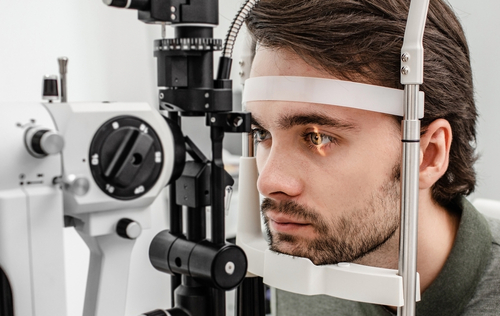Why Are Regular Eye Exams Important?
March 22nd, 2023
Regular eye exams should be as routine as annual physicals with your primary care doctor or visits to the dentist for teeth cleaning and checkups. However, many people don’t schedule regular eye exams because they believe they only need to visit their eye doctor when they have a problem.
The eyes can often reveal the presence of whole-body health issues. Beyond many other eye and vision-related problems, a quick in-office evaluation of the health of your eyes can alert your eye doctor to issues threatening your overall wellness.
Keep reading to why regular eye exams are important!
Early Detection of Many Eye Conditions
Detecting signs of certain eye conditions early often means that these issues can be arrested, prevented, or in some situations, even reversed. Early diagnosis means earlier treatment; the best way to save your sight is to take care of it before problems develop or worsen.
In some cases, watchful waiting is the best option. In other situations, treatment will preserve your sight and ensure that you see clearly in the years and decades ahead.
Monitoring for Changes in Vision
Changes in vision will alert your eye doctor to serious problems such as macular degeneration, glaucoma, or a detached retina which, if untreated, can lead to blindness. Even the gradual diminishment of vision through an age-related condition like cataracts is best followed by an eye care professional.
Knowing what to do and when to do it is essential to eye health, and if you wait until you notice the change in vision yourself, it may be too late.
Possible Identification of Systemic Health Problems
When your eye doctor notices a vision or eye problem, it can either be exclusive to the eye or a health concern that affects the entire body. Diabetes is one such disease, and there are many others that your eye doctor may be able to notice signs of during a comprehensive eye exam.
While you may not feel ill, if your eyesight is compromised, the function of other organs may be compromised as well. Eye exams are another layer of protection, especially as you get older.
Maintaining Good Vision
If you’ve always had clear vision and no other eye issues, you may wonder if it’s necessary for you to visit your eye doctor for routine eye exams. It’s a good idea to start with a baseline exam in your twenties, and if all is well, you can wait until your thirties for the next one.
The American Academy of Ophthalmology recommends a complete eye examination at age forty. But if you have diabetes, a family history of eye disease, or you have high blood pressure, don’t wait until you’re forty to schedule a comprehensive eye exam.
Have your eyes checked every year when you reach sixty-five years of age. Your eye doctor will look for the presence of cataracts,
diabetic retinopathy, age-related macular degeneration, and glaucoma.
There’s Never Too Much Information
When you see your ophthalmologist, always share information about your family health history, any concerns or pains you may be experiencing, and chronic conditions you are receiving care for. Specific medications put you at higher risk of developing certain eye conditions, so help your ophthalmologist: be specific and straightforward about your overall health.
Is it time for you to have your eyes checked? Schedule an appointment at Laser Eye Center in Huntsville, AL, today!



